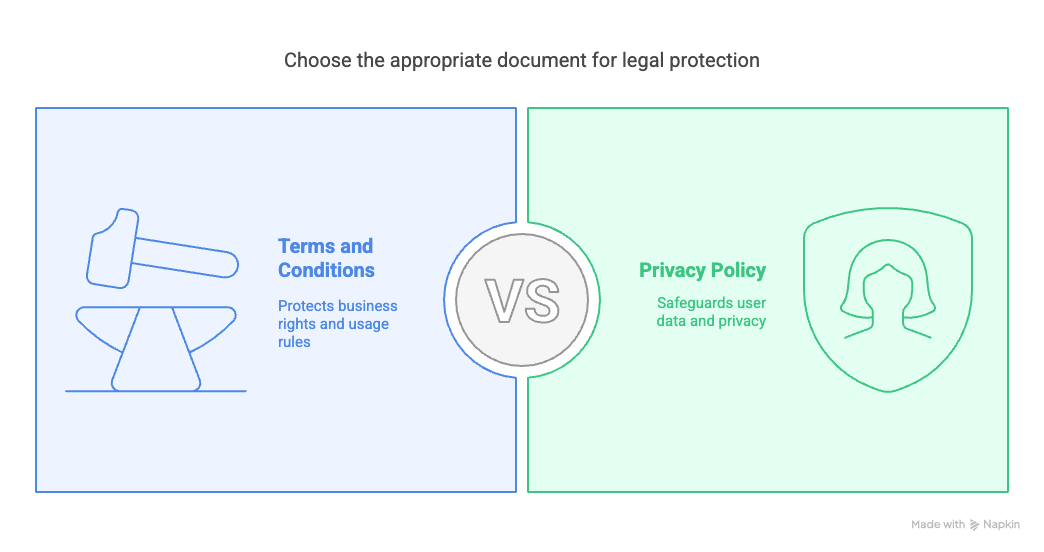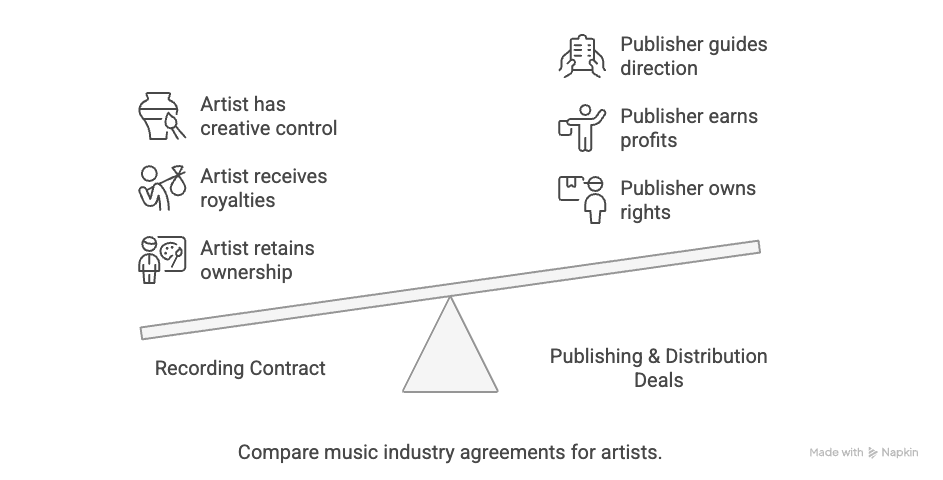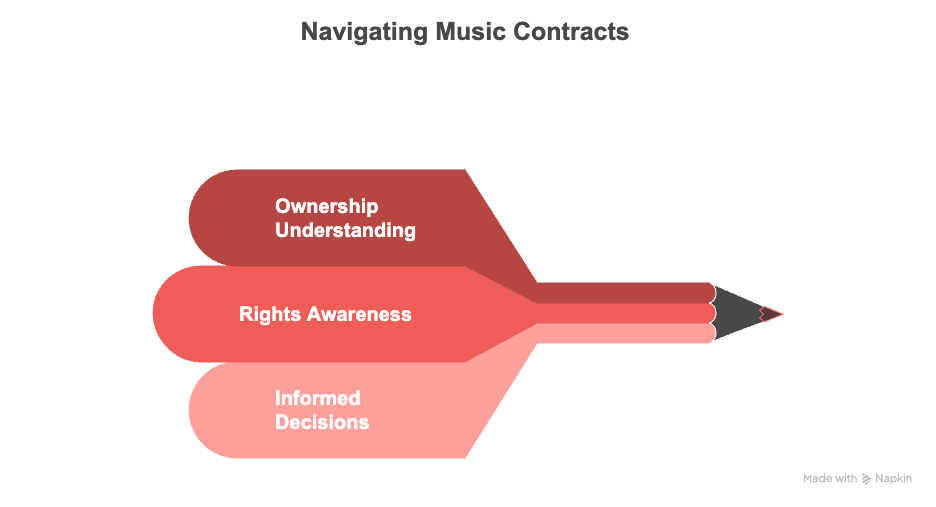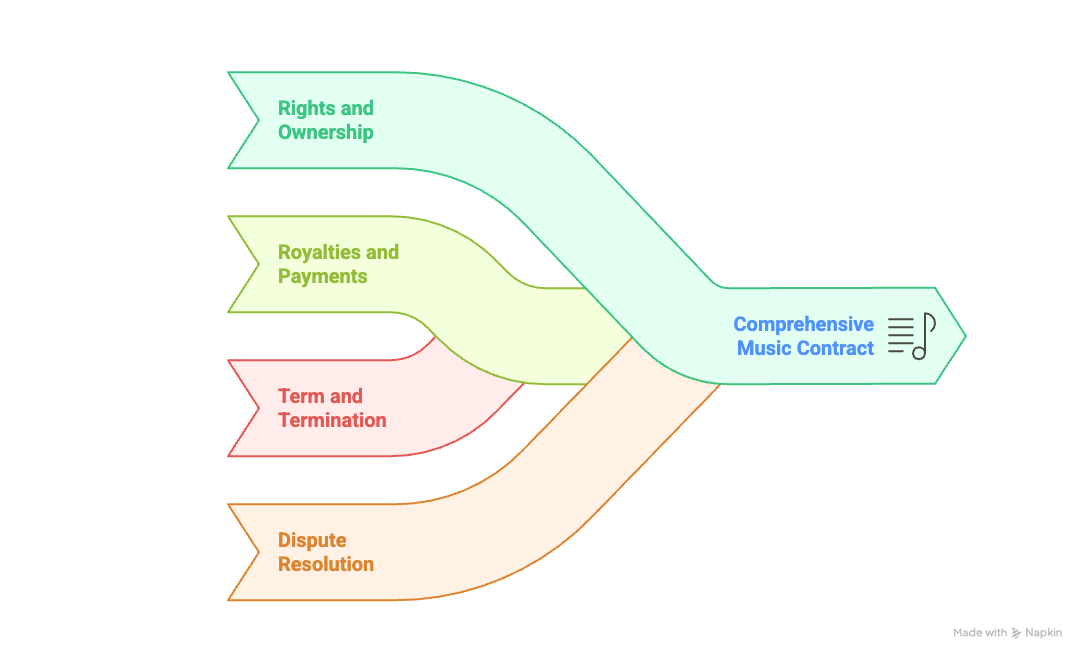
Terms And Conditions Vs Privacy Policy What’s The Difference
Last Updated on May 10, 2025
If you’re setting up a website, especially in Canada, you’ve likely seen references to both Terms and Conditions and Privacy Policies. While they may seem similar, they serve very different legal purposes.
This guide explains what each document covers, how they differ, and why your website needs both to stay compliant and legally protected.
What Are Terms and Conditions?
Terms and Conditions (also called Terms of Service or Terms of Use) are a legal contract between your business and your website users. They outline the rules for using your site and what rights and responsibilities both parties have.
Key elements include:
- Acceptable user behavior
- Intellectual property rights
- Disclaimers and limitation of liability
- Termination rights
- Jurisdiction (which province’s laws apply)
T&Cs are not legally required in Canada, but they are critical for enforcement and liability protection.
What Is a Privacy Policy?
A Privacy Policy is a legal disclosure explaining how your website collects, uses, stores, and shares personal data. In Canada, it is legally required under the Personal Information Protection and Electronic Documents Act (PIPEDA) if you collect any user information (like names, emails, or analytics).
Your Privacy Policy should cover:
- What personal data you collect
- Why and how you collect it
- Who you share it with (e.g., third parties)
- How users can access or delete their data
- Your cookie and tracking practices
Unlike Terms, a Privacy Policy is mandated by law.
Key Differences Between T&Cs and Privacy Policies
| Feature | Terms and Conditions | Privacy Policy |
| Legal Purpose | Contractual rules for using the site | Data transparency and privacy disclosure |
| Legally Required? | No (but recommended) | Yes, if collecting personal data |
| Audience | General site users | Data subjects (visitors, customers) |
| Covers | Conduct, IP, liability, legal rights | Data use, consent, access, cookies |
| Governing Law | Contract law | Privacy law (e.g., PIPEDA) |
Do I Need Both?
Yes. These documents do two different jobs:
- Terms and Conditions protect your business
- Privacy Policies protect your users and help meet legal compliance
Without both, you could:
- Lose legal control over user behavior
- Face fines or penalties for non-compliance
- Undermine user trust
Final Tip
Think of Terms and Conditions as your rules, and Privacy Policy as your transparency pledge. Both are essential for a compliant, trustworthy Canadian website.
Need help writing both? Download our free templates to get started.
Download the Free Website Terms And Conditions Template
Ready to apply what you've learned? Get instant access to the Website Terms And Conditions PDF - free, editable, and built for Canadian businesses. No sign-up required.
Frequently Asked Questions
Answers to common questions about Terms And Conditions Vs Privacy Policy What’s The Difference.
Do I need a Privacy Policy if I only collect emails for a newsletter?
Yes. Email addresses are considered personal information under PIPEDA, so you must disclose how they’re collected, stored, and used.
Can Terms and Conditions include refund and payment policies?
Absolutely. If you sell products or services, use your T&Cs to explain payment terms, return/refund policies, and dispute resolution.
What law applies to my Privacy Policy in Canada?
PIPEDA is the federal law for most private-sector websites, but provincial laws like Quebec’s Law 25 may also apply.
Should users be able to opt out of tracking?
Yes, especially if you use cookies or analytics tools. Your Privacy Policy should explain opt-out rights and include a cookie notice if needed.
Can I be fined for not having a Privacy Policy in Canada?
Yes. Violating PIPEDA or similar laws can result in regulatory penalties and reputational damage.
Can I combine my Terms and Conditions and Privacy Policy?
No. Keep them separate. Merging them can confuse users and may violate PIPEDA or GDPR.
Are both required by Canadian law?
Privacy Policies are required under PIPEDA. T&Cs are not mandatory but are strongly recommended for legal protection.
Where should I link each document?
Place both in your website footer, sign-up forms, and checkout process — especially if users must give consent.
Can I use a single document for both website and app?
You can link to the same Privacy Policy, but Terms should be adapted to the platform (web vs mobile).
What happens if I don’t publish either policy?
You risk enforcement actions, limited legal defense, and reputational harm.
Explore More in Creative Digital Contracts
Discover curated templates in Creative Digital Contracts to help your business stay compliant and efficient.


